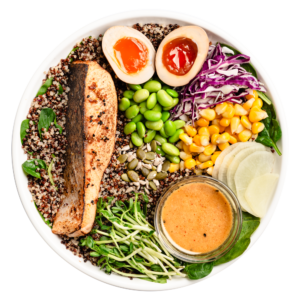In today’s food landscape, nutrition is only part of the equation. Increasingly, people are asking not just what they eat—but how it’s grown, sourced, and served. The rise of sustainable and ethical eating practices reflects a deeper awareness of our food systems’ environmental and social impact. Every meal is a chance to vote for a better world—one that protects the planet, respects farm workers, and prioritizes animal welfare.
This movement toward more conscious consumption is more than a trend. It’s a necessary shift toward resilience, equity, and longevity—for people, communities, and ecosystems.
What Is Sustainable Eating?
Sustainable eating refers to choosing foods that are produced, processed, and distributed in ways that protect the environment, preserve natural resources, and minimize carbon emissions. It considers:
- Water and land use
- Pesticide and fertilizer impact
- Greenhouse gas emissions
- Biodiversity and soil health
- Food waste reduction
Examples of sustainable food choices include seasonal produce, organic farming, regenerative agriculture, and locally grown ingredients that reduce transportation emissions.
What Is Ethical Eating?
Ethical eating goes a step further by considering the human and animal welfare implications of our food system. It encourages support for:
- Fair trade and living wages for farmers and workers
- Humane treatment of animals in farming
- Supply chain transparency
- Reducing exploitative labor practices
Ethical eaters often seek out certified products—like ASC-certified seafood, cage-free eggs, or fair-trade coffee—as indicators of a more responsible food source.
Why It Matters: The Impact of Our Choices
The current global food system is a leading contributor to climate change, deforestation, water pollution, and biodiversity loss. Animal agriculture alone accounts for roughly 14.5% of global greenhouse gas emissions. Meanwhile, monocropping, overfishing, and synthetic pesticides further strain fragile ecosystems.
But the ripple effect doesn’t stop at the environment. Many agricultural workers around the world face low wages, unsafe working conditions, and lack of job security. Choosing foods from ethical producers helps support dignity and fairness in the supply chain.
Practical Tips for Sustainable and Ethical Eating
The good news? You don’t need to overhaul your entire diet to make a difference. Even small changes can add up. Here’s how to start:
1. Eat More Plants
Plant-based foods generally have a lower carbon footprint than meat and dairy. Incorporating more legumes, grains, vegetables, and plant-based proteins is an easy, impactful step. Even going meatless one or two days a week makes a difference.
2. Support Sustainable Seafood
Look for certifications like ASC (Aquaculture Stewardship Council) and MSC (Marine Stewardship Council), which indicate responsible fishery or aquaculture practices. Brands like SaladStop! highlight their use of ASC Certified Tuna and sustainably sourced salmon—providing quality protein without compromising ocean health.
3. Choose Local and Seasonal
Foods grown close to home require less transportation and are typically fresher. Visit farmers markets or support restaurants and brands that highlight local partnerships.
4. Reduce Food Waste
Plan meals, use leftovers creatively, and store food properly to avoid unnecessary waste. Composting scraps is another way to close the loop and nourish the soil.
5. Understand Labels and Certifications
Learn to recognize meaningful food certifications:
- Organic: grown without synthetic pesticides
- Fair Trade: ensures fair wages and labor conditions
- Rainforest Alliance: promotes ecosystem conservation
- Certified Humane: upholds animal welfare standards
6. Choose Transparent Brands
Support businesses that openly share their sourcing practices. SaladStop!, for example, emphasizes traceability and responsible sourcing across its menu—from using organic quinoa from trusted suppliers to crafting dressings with extra virgin olive oil, not seed oils.
A New Standard for Eating Well
Sustainable and ethical eating doesn’t mean sacrificing flavor or convenience. In fact, it often means rediscovering fresh, vibrant ingredients and meals that make you feel good—inside and out.
Forward-thinking food brands are rising to the challenge, making it easier than ever to align your values with your meals. Whether it’s through plant-forward warm bowls, eco-conscious packaging, or farm-to-table sourcing, companies like SaladStop! are helping to set a higher standard for responsible dining.
Eating is a daily habit—but it’s also an opportunity. By adopting sustainable and ethical eating practices, we do more than nourish our bodies; we contribute to a food system that respects the earth and its people.
Every bowl, plate, or bite counts. So the next time you order a salad, choose a recipe, or walk into your favorite café, remember: the food you choose has the power to shape a healthier, more just world.




